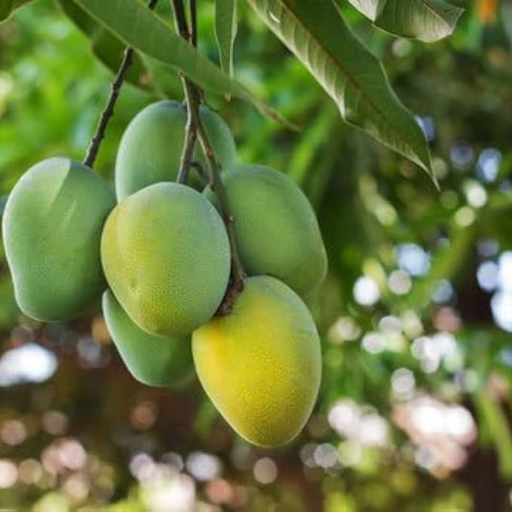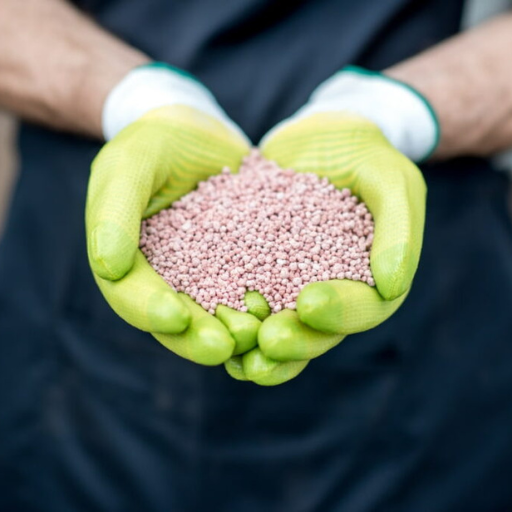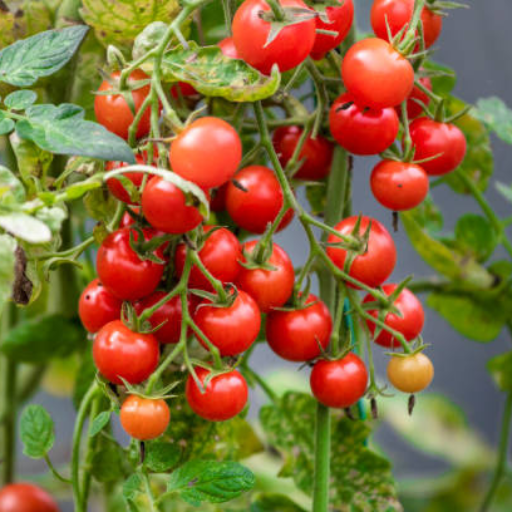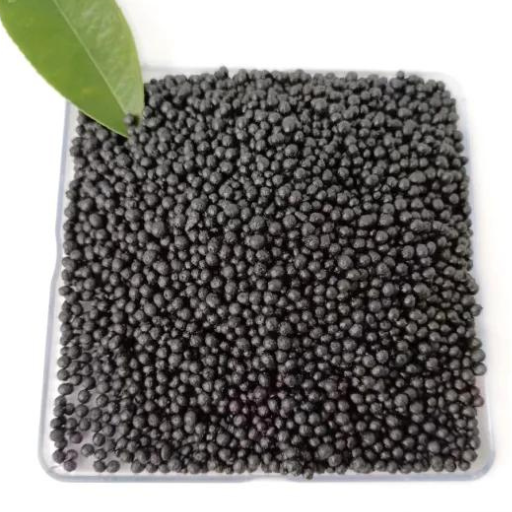Welcome to our blog dedicated to the world of organic fruit fertilizers. In this space, we aim to equip you with all the essential knowledge and insights needed to nurture a thriving and sustainable garden. From understanding the benefits of using organic fertilizers to exploring various types and application methods, we cover it all. Whether you are a seasoned gardener or just beginning your journey into organic gardening, our articles will provide practical tips, scientific explanations, and eco-friendly practices to help your plants flourish. Join us as we delve into the enriching world of organic fertilizers and transform your garden into a lush, productive oasis.
What is Organic Fruit Fertilizer and Why is it Important?

Understanding organic ingredients in fertilizers
Some chemicals are made of plants, animals or minerals that exist naturally. These constituents are important since they provide important nutrients like potassium, phosphorous and nitrogen which are vital for growth. Organic forms of these essential plant nutrients differ from inorganic ones because they build up the organic matter content of soil, boost microbial action and increase water retention capacity. This type of farming is therefore more sustainable as well as environmentally friendly because it does not involve harmful chemical fertilizers.
Certified Organic Standards and Regulations
To meet the criteria such as those stipulated by USDA Organic Certification (in America) or EU Organic Regulation (Europe), regulatory bodies ensure that organic fertilizers conform to specific standards. For instance, organic manures should be free from synthetic chemicals, GMOs and toxic pesticides. The certification process involves rigorous inspections and evaluations of production methods, ingredient sourcing, and labeling practices to uphold transparency and consumer trust. Certified organic standards guarantee quality assurance as well as safety in terms of using such fertilizers thereby supporting sustainable agriculture so as to protect the environment and encourage biodiversity.
Benefits of Using Organic Fertilizers Over Synthetic Ones
There are many advantages associated with the use of organic fertilizers compared to synthetic ones. One major advantage is that they make soil structure better improving its fertility over time because they introduce organic matter into it. This enhances aeration, water holding capacity and nutrient availability in the soil among others. In addition, there is an ecosystem functioning within soils due to these elements whereby they promote growth of beneficial microorganisms that help in nutrient cycling processes while suppressing diseases.
Also these types allow steady availability for longer periods than other manures do in agriculture fields thereby ensuring sustained crop nutrition unlike the case with most other options including chemical ones where excessive nutrients can be found immediately after deposition leading to pollution through runoff materials into aquatic systems. Nutrient release by organics takes place very slowly meaning that this will fit in well with the growth stages of crops thereby minimizing the chances of leaching off nutrients and enhancing efficient uptake.
Again organic fertilizers are eco-friendly. They come from natural materials that can be renewed and do not involve harmful chemical components which cause pollution to waters, land degradation or even extinction of local organisms. In this case, organic manures help in maintaining resources for sustainable agriculture while at the same time stabilizing biodiversity by enabling farmers and gardeners to use products that are environmentally safe.
To sum up, organic fertilizer use results in healthier soils, plants and a cleaner environment thus making them best suited for sustainable farming and gardening.
How to Apply Fruit Tree Fertilizer for Optimal Plant Growth?
The When and How of Watering Your Plants
Watering your plants properly is essential for their wellbeing and development. The best time to water is in the morning. This enables the soil to soak up the moisture before being lost through evaporation because of sun’s heat, thus ensuring that the plants have enough water all through the day. Also watering in the morning helps avoid any fungal growth that might occur due to wet leaves staying overnight.
The frequency with which you should water depends on what plant it is, kind of soil and also climate conditions. It is good for most plants if they are deeply and infrequently watered since it assists in making the roots grow down deeper so as to enable them withstand droughts better as they are more drought-tolerant. For container plants, you should check how moist it is every day because they tend to dry out faster than garden beds do.
To attain maximum watering effect ensure that your soil gets soaked fully. Shallow watering should be avoided as this leads to a weak root system; hence deep irrigation will encourage root growth downwards. Consistent moisture supply can be achieved by using a soaker hose or drip irrigation system while conserving water at same time. Besides, mulch around plant bases keeps moisture inside ground which means less frequent need for watering.
In sum, early morning watering, deep yet infrequent watering together with evenness in water distribution during irrigation enhances healthy growth.
Role Of Nitrogen, Calcium And Potassium In Plant Nutrition
Nitrogen, calcium, potassium contribute variously towards plant nutrition and each plays unique roles in enhancing plant health and growth.
Nitrogen being a major component of chlorophyll which forms photosynthesis compounds makes it very important for plant growth. Moreover Nitrogen participate amino acid formation meaning being needed protein forming blocks its relevance cannot be underestimated leafy green spurt however occurs only when vegetables such as lettuce develop.
Calcium acts as an important element in cell walls and membranes, therefore it maintains them as strong structures. It helps in the regulation of nutrient uptake while also ensuring proper root and shoot development. In addition to this, calcium aids other nutrients movement throughout plants’ while also enabling enzymes to function accordingly.
Potassium is frequently referred to as a ‘quality nutrient’ for its role in improving the quality of fruits, grains and vegetables. Water uptake, enzyme activation and energy production are some physiological processes which are regulated by potassium among its several roles in plant life. The fortification of plants against diseases and environmental stresses is supported by potassium as well as formation of sturdy stems and roots.
To sum up, nitrogen is related to vigorous leaf foliage growth; calcium builds stronger cell walls besides aiding movement of nutrients; while potassium improves quality through enhancing resilience. Well balanced fertilizers that supply these vital elements must be used for good health and productivity of plants.
Important tips on how to improve Soil Health
- Add organic matter: Incorporating organic matter such as compost or manure into your soil enhances its health significantly. This way, organic matter will enhance soil structure, increase microbial activities leading improved nutrient availability.
- Try No-Till Farming: By minimizing soil disturbance no-till farming assists in maintaining the soil structure hence reducing erosion risks. Moreover this keeps organic substances retained within soils thus improving water infiltration that subsequently make soils healthier.
- Crop Rotation: Nutrient depletion can be avoided by crop rotation at the same time pests and diseases prevalence is reduced. Different crops have different nutrient demands and specific pests therefore they are rotated so that there is equilibrium between them regarding fertility status or healthiness of soils being maintained all through their life span.
- Utilize Mulch: Placing mulch on top of the ground helps save moisture in soil, prevents wash away and adds organic content as it decays. Besides, Mulching also keeps out weeds that otherwise take away nutrients and water meant for other crops one may not want.
Which Organic Fertilizer is Best Suited for Different Fruit Trees?

The Appropriate Fertilizer for Citrus Trees
While deciding on the right fertilizer for citrus trees, it is important to remember that it should contain a balanced amount of nitrogen, phosphorus and potassium, and micronutrients such as magnesium, iron and zinc. Nitrogen is essential in promoting vigorous leaf and fruit growth in citrus trees hence fertilizers with high nitrogen content are best for them. Examples of such fertilizers include those labeled 2-1-1 or 3-1-1 like the 6-3-3 mixtures which may also contain secondary elements and trace elements to support general tree health. Fish emulsion, blood meal or composted manure are among organic options because they slowly release nutrients as well as improve soil structure and microbial activity. When you follow this routine of applying these fertilizers your leaves will be fed enough nutrients as needed.
Top Tomato Plant Fertilizers
To obtain a healthy harvest of tomatoes some considerations must be made when choosing the best type of fertilizer for them based on current experts’ advice:
- LOYAL: This organic tomato food has been formulated with a blend of nitrogen, phosphorous, potassium (nitrogen-phosphorus-potassium ratio of 3:4:6) plus beneficial microbes that enhance soil in order to promote plant growth. Its slowness ensures steady feeding over an extended period while its soil enhancing ability makes it suitable for use in organic gardens.
- Jobe’s Organics Vegetable & Tomato Fertilizer Spikes: These spikes are used to put essential nutrients directly into the root zone since there are other plenty types with good reviews. They help plants grow strong roots which influence how healthy or unhealthy their fruits become; bearing in mind that tomatoes are heavy feeders than most vegetables among others. In addition they have rich microbial inoculants approved by OMRI (Organic Materials Review Institute) along with spikes intended for organic gardening purposes.
- Dr. Earth Home Grown Tomato, Vegetable, & Herb Fertilizer: This organic plant food has a 4-6-3 NPK ratio and is fortified with beneficial soil microbes and mycorrhizae to enhance root growth thereby promoting resistance to diseases. It is safe for humans as well as pets hence can also be used in home gardens. Use of this product leads to strong growth and tasty tomatoes.
Your tomato plants will get the nourishment they need throughout the growing season if you use any of these top recommended fertilizers according to their application instructions.
Special Conditions Needed for Vegetable Gardens
For a successful vegetable garden there are several important things that must always be kept in mind:
- Quality of Soil:The soil should have good drainage, and it should contain enough organic matter within it. Before planting your vegetables, do a soil test so as to determine its pH level and nutrient content; add compost or organic matter where necessary to attain optimal balance.
- Crop Rotation: Rotate crops every year so that you avoid soil depletion as well as reduce diseases and pests’ risks. By diversifying the nutrition taken from the soil, crop rotation helps maintain soil fertility while encouraging healthier plants.
- Watering Methods: Proper watering habits should always be adhered to by farmers because it matters a lot in determining whether crops will grow well or not. Employing drip irrigation systems or using soaker hoses will ensure water reaches into the roots directly thus preventing foliar diseases resulting due to overspray on leaves. Mulching around plants can also help retain soil moisture and regulate soil temperature.
- Availability of Sunlight: Most vegetables require at least 6-8 hours of direct sunlight per day. Plan your garden layout based on light requirements; taller plants placed toward the back could cast too much shade over shorter ones when sun moves across sky.
- Companion planting:beneficial insects and natural repellents are among the many organic pest control methods employed under this program. Check plants regularly for signs of pests and diseases.
Considering these factors will help you maintain a healthy and productive vegetable garden that produces abundant harvests throughout the growing season.
How to Formulate Your Own Organic Fertilizer Mix at Home?

Essential Materials Review for Home Gardeners
Considering that you desire to have an assortment of organic fertilizer ingredients blended in your own home, the essential materials include the following:
- Compost: An important component of any organic fertilizer mix is compost. It contains a number of plant nutrients and beneficial microbes. It can be made from different types of organic waste such as kitchen peels, grass clippings, or fallen leaves.
- Manure: Aged manure from cows, horses, chickens or rabbits is essential to enriching your soil with crucial nutrients such as nitrogen (N), phosphorus (P) and potassium (K). Make sure it is completely broken down before applying it around plants so that it does not cause damage.
- Bone meal: This substance has lots of phosphorous which plays a vital role in flowering and root development. Bone meal encourages cell division which strengthens plants growth power and yield.
- Fish emulsion: The solution that comes from fish left overs is an even supply of all needed elements. This variety is rich in nitrogen, which plants are quick to absorb making it ideal for giving a nutrient boost.
- Epsom salts: Epsom salt helps in chlorophyll production so as to improve nutrient uptake by plants through the presence of magnesium and sulfate; hence can be mixed into the soil or diluted with water for foliar feeding.
- Kelp meal: Kelp provides trace minerals, growth hormones and vitamins that promote strong root systems and overall plant health. It also improves soil structure and water retention.
The procedure for preparing your own organic fertilizer blend includes:
- Mix equal parts compost with aged manure as a base for this mixture.
- Add bone meal at approximately 1 cup per gallon of your basic combination.
- Introduce fish emulsion using the manufacturer’s recommendations on dilution ratios.
- Including one tablespoonful Epsom salt per gallon base mixture should be incorporated into it while stirring well
- Finally, according to package directions blend in kelp meal for added nutrients.
With these essential materials and the steps provided, you can make an organic fertilizer well-suited to enrich your garden with nutrients.
Combining Bone Meal, Alfalfa Meal, and Other Ingredients
In combining bone meal, alfalfa meal, and other ingredients it is crucial to balance the nutrient profiles to achieve a comprehensive organic fertilizer. Bone meal is high in phosphorus (P) which leads to good root development and flowering while alfalfa contains nitrogen (N) as well as some trace minerals that are necessary for overall plant health and growth. Creating an effective mix involves:
- Base Ingredients: Begin with either compost or aged manure as these will supply organic matter and microbial activity.
- Bone Meal: Mix 1 cup of bone meal into one gallon of the mixture; this will support root growth and enhance blooms.
- Alfalfa Meal: Add 2-3 cups of alfalfa meal per gallon base mix because it has natural plant stimulants and nutrient content that improves vigor.
- Other Ingredients: Optionally, you can also add fish emulsion for a quick nitrogen boost, Epsom salt for magnesium, and kelp meal for additional trace minerals and growth hormones.
Stir well to ensure even distribution of nutrients. The idea behind mixing all these three components together is to provide plants with abundant amount of vital elements throughout their lives leading them towards stronger healthier vegetative growth.
Troubleshooting Common Plant Growth Issues
When troubleshooting common plant growth issues, it’s crucial to identify the symptoms and potential causes accurately. Here’s a concise guide to help diagnose and address frequent problems:
- Yellowing Leaves: This can be caused by nutrient deficiencies, particularly nitrogen, overwatering, or poor drainage. Ensure your plants have proper drainage and adjust watering schedules. Consider adding a balanced fertilizer if a nutrient deficiency is suspected.
- Wilting: This issue may result from underwatering, overwatering, or root damage. Check soil moisture regularly and water plants consistently. Inspect roots for signs of rot or pests and take action accordingly.
- Stunted Growth: Poor growth can stem from insufficient light, compacted soil, or lack of nutrients. Ensure plants are receiving adequate sunlight and loosen the soil around the roots. Amending the soil with organic matter can improve nutrient availability.
By monitoring these common issues and taking corrective measures, you can promote healthy plant growth and vibrant gardens.
What Are the Environmental Benefits of Using Organic Fruit Fertilizers?

Decreasing Chemical Runoff and Saving Soil and Water
Using organic fruit fertilizers can greatly help cut down on chemical run-offs thus safeguarding the health of both soil and water. On the other hand, synthetic fertilizers contain man-made chemicals that easily dissolve in water ways leading to pollution. Natural sources provide such nutrients as organic fertilizers slowly decompose unlike synthetic ones. The process of decomposition is slow thus minimizing the risk of nutrient leaching and runoff, hence keeping rivers cleaner and promoting healthier aquatic ecosystems. Additionally, these products increase microbial activity in the soil improving soil structure ad enhancing fertility while also ensuring that there are enough organic remains for sustainable farming practices which gives a contribution to environmental management.
Supporting Sustainable Farming Techniques
The significance of supporting sustainable farming techniques cannot be overstated when it comes to the long term preservation of our planet. I back up farming strategies that lower chemical inputs but at the same time encourage biodiversity and improve soil quality through application of natural fruit fertilizers. This allows for a lot of organic matter in soils therefore increasing water holding capacity while reducing soil erosion in return. It has been realized that these activities assist in carbon sequestration thereby mitigating climate change and strengthening resilience among farms where crops are grown. Through this I am able to maintain a clean environment advocating for support from future generations.
Improving Harvests through Organic Matter
Inclusion of organic matter into my agricultural practices will tremendously boost an abundant harvest. Examples include composting or applying green manures which have concentrated amounts of essential plant nutrients besides improving its texture by adding humus that leads to enhanced root development as well as increased plant vigor making them produce more yield per unit area. Ultimately, improved aeration enhances moisture retention by soils promoting growth hence optimum crop yields potential. Furthermore, this material keeps up continuous and stable productivity because it fosters beneficial microbial activities that quickly break down elements’ molecules into forms which can be easily absorbed by plants.
Frequently Asked Questions (FAQs)

Q: What are some important ingredients in Organic Fruit Fertilizer?
A: Organic nutrients like fish bone meal and feather meal among others are also key ingredients that contribute to both fast acting and slow release feeding for your plants.
Q: How much of Organic Fruit Fertilizer is required for a raised bed?
A: For a common raised bed, approximately 4 pounds of the fertilizer is needed. Remember, fully water after applying this which makes it merge into the soil.
Q: How often should I apply the fertilizer throughout the gardening journey?
A: It’s better to apply the Organic Fruit Fertilizer every 4-6 weeks during growing season in order to sustain an optimal nutrient level while giving a continuous supply of food to plants.
Q: Why Is This Fertilizer Called Fast Acting?
A:The fact that our fertilizer contains feather meal and fish bone meal as quick releasing nutrients shows that it offers instant solutions to developing plants hence their healthiness and growth from as early as you begin gardening.
Q:Is this suitable fertilizer for beginner gardeners?
A: Yes! First-time gardeners will find Organic Fruit Fertilizer very helpful. Its wide blend of nutrients forms an easy but successful way to start with confidence on your gardening journey.
Q: In what ways does Organic Fruit Fertilizer assist certified organic farmers?
A: Our Organic Fruit Fertilizer meets National Organic Program (NOP) standards and is OMRI certified so that we can provide certified organic farmers with credible sources of organic nutrients ensuring truly organic food from start to finish.






